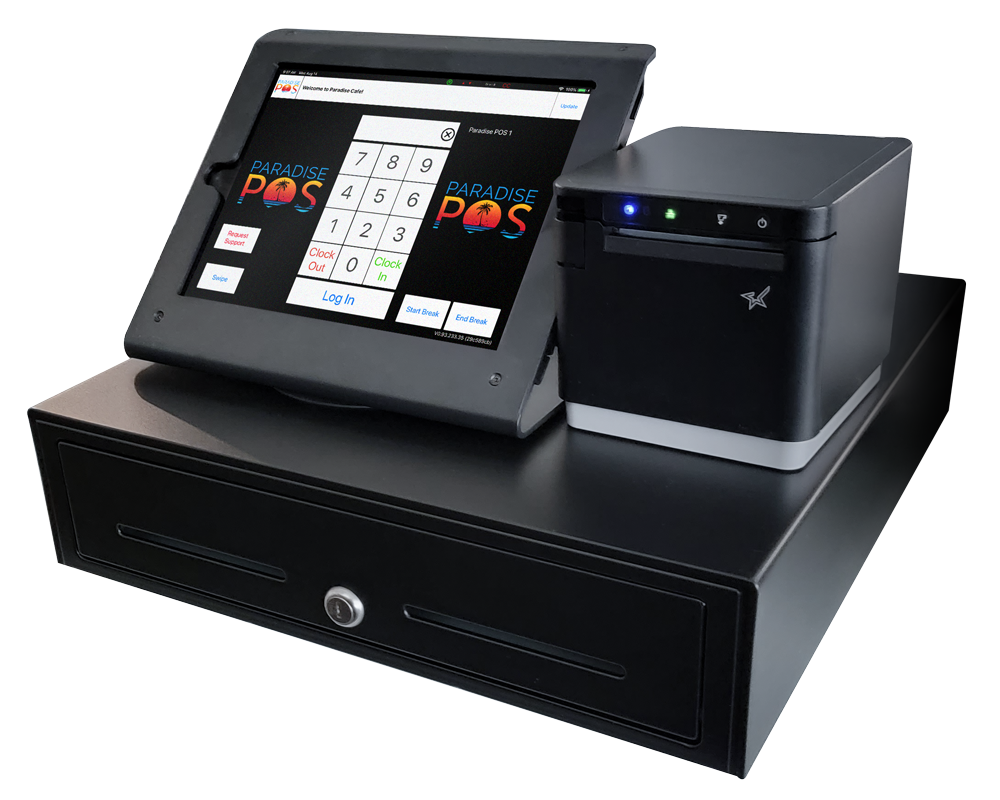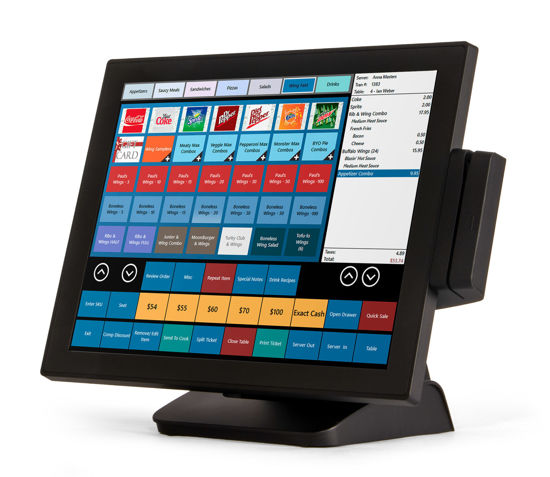The 4-Minute Rule for Pos System For Small Business

POS Software: Retail Point-Of-Sale Solutions Streamline Deals
Fascination About Point Of Sale Systems

Hardware Components of a Point of Sale System What makes a POS system tick? It's not just software; the hardware plays a starring function. Think of it as the body to the software's brain. Without the best hardware, even the most sophisticated POS software application is simply a quite face. Important POS Hardware So, what are the must-haves? Let's break it down. The central processing system, frequently a computer or tablet, is the heart of the operation. The display or touchscreen display permits personnel to connect with the system. A barcode scanner accelerate the checkout procedure. Keep in mind the days of by hand going into each code? The trusty receipt printer provides clients with a record of their purchase. A money drawer keeps your money safe and arranged. A card reader allows clients to pay with credit or debit cards. Diving Deeper: Beyond the Essential However wait, there's more! Depending on your organization, you may require specialized hardware. A restaurant might integrate kitchen printers to relay orders, while a retail store might utilize label printers for item tagging. Ever question how your local bakeshop quickly prints those delicious-looking labels? Choosing the Right Hardware: A Balancing Act Picking the right hardware isn't practically purchasing the most expensive equipment. It has to do with discovering the sweet area between performance, sturdiness, and spending plan. A little company just starting out might choose a more standard setup, while a high-volume seller will require robust, high-performance makers. Is it better to buy brand-new or utilized? Consider your options thoroughly. A brand-new system uses the current innovation and guarantee security, however a refurbished system can save you money. The Future of POS Hardware What does the future hold? Anticipate to see much more combination with mobile gadgets, biometric scanners for employee authentication, and advanced analytics control panels displayed on larger, clearer screens. Think of a world where inventory is immediately updated in real-time as items are scanned-- a world where you can track your best-selling item from throughout the world. The possibilities are endless, and more info the hardware is constantly developing to fulfill the demands these days's companies. Are you prepared to update your point of sale system?
Software Characteristics and Capabilities: The Heart of Your POS System
Ever see a skilled barista move through a busy morning rush? Their secret isn't simply caffeine; it's a smooth dance with their POS system. The software is the conductor of your organization symphony, orchestrating whatever from sales to stock. However what notes should you be listening for? What capabilities truly matter in today's market?
Inventory Management: Beyond Counting Beans
Forget spreadsheets that haunt your dreams. Modern POS systems provide real-time inventory tracking, notifying you when your stock of artisanal coffee beans dips precariously low. Think about it as a digital guardian angel, avoiding those awkward "Sorry, we're out!" moments to consumers. What if you could also forecast demand based upon historic data? Numerous systems now use forecasting tools, an effective weapon versus overstocking and lost sales. This assists prevent the predicament of running out of popular products or building up excess inventory of slow-moving products, both of which can constrain cash flow and space.
Sales Reporting and Analytics: Translating the Information
Sales data is the new gold, and your POS system is the miner. Forget feeling in one's bones just how much you sold today. Dive deep into the data to reveal patterns, determine your very popular products, and comprehend customer habits. Which menu item pairs perfectly with the daily special? Which promo resonated most with your clientele? These insights are not just interesting; they're actionable intelligence. Without dependable sales reporting, navigating the intricacies of business decision-making becomes like cruising without a compass, increasing the opportunity of missteps and missed chances.
Client Relationship Management (CRM): Building Bridges, Not Walls
Remembering a regular client's name and favorite order is captivating, however scaling that individual touch is difficult. POS systems with CRM abilities enable you to track customer purchase history, choices, and even birthdays. Imagine instantly providing a discount rate on their birthday-- a little gesture that cultivates loyalty and motivates repeat organization. However there is the potential snag of poor data quality, which can cause inaccurate client profiles and inadequate marketing efforts.
Payment Processing: Enhancing the Transaction
The checkout experience can make or break a sale. Seamless combination with numerous payment methods-- charge card, mobile wallets, even copyright-- is non-negotiable. Can your system manage split payments? Does it provide secure tokenization to safeguard customer data? A cumbersome payment process is like hitting a sour note in your business symphony, potentially disrupting the whole efficiency. Ensuring compatibility with developing payment technologies and adherence to security requirements are vital for maintaining customer trust and functional effectiveness.
Employee Management: Keeping the Team in Sync
From clocking in and out to handling consents and tracking performance, staff member management includes simplify operations and improve responsibility. Is scheduling a nightmare? Many POS systems provide integrated scheduling tools, optimizing staffing levels based upon forecasted need. A typical challenge that is often neglected is the challenge of incorporating staff member management performances with payroll systems, which can lead to errors and inadequacies in wage estimations.
Advanced Characteristics: Leveling Up Your Operations
- Table Management: Perfect for restaurants, this function enables you to imagine your dining-room, track table status, and handle reservations.
- Loyalty Programs: Reward your finest clients and encourage repeat business with integrated commitment programs.
- Online Purchasing Combination: Seamlessly integrate your POS system with online purchasing platforms to expand your reach.
Picking the ideal POS system has to do with more than simply functionality; it has to do with finding a partner that can grow with your service. Consider your present requirements, anticipate future development, and don't hesitate to ask the difficult questions. The right software can change your company from a chaotic cacophony into an unified masterpiece.
Industry-Specific POS System Applications
Consider the local bakeshop, busy with morning customers yearning fresh croissants. A generic POS system might manage deals, but can it handle complex recipes, track active ingredient stock, or immediately adjust production schedules based upon sales data? Most likely not. That is where the appeal of industry-specific POS systems shines.
Restaurants and Hospitality
For dynamic dining establishments, speed and precision are vital. The number of times have you seen servers juggling orders, modifications, and splitting bills, all while trying to provide excellent service? A restaurant POS system improves these processes, permitting table management, kitchen area order tickets, and even online purchasing integration. These systems typically consist of functions like ingredient-level stock tracking, vital for handling food expenses and minimizing waste. Ever question why your preferred meal is often not available? It might originate from a lack of correct inventory management.
- Table Management
- Kitchen Area Order Tickets
- Online Ordering Integration
- Ingredient-Level Stock Tracking
Retail Solutions
Retail, with its diverse inventory and consumer interactions, demands a different set of tools. Think of a store clothes store struggling to track sizes, colors, and seasonal collections utilizing a standard checkout system. An industry-specific retail POS system provides features like barcode scanning, client commitment programs, and detailed sales reporting. These systems can even incorporate with e-commerce platforms, offering a seamless omnichannel experience for clients. Did you know some retail POS systems can predict future sales trends based on historic information? Now that is powerful!
The Dangers of an Inequality
Selecting the incorrect POS system can produce considerable operational obstacles. A clothing store using a dining establishment POS, for example, would find it unsuitable for handling stock with sizes and colors. The lack of correct reporting and analytics might result in mistaken purchasing choices and lost income. The result could be similar to attempting to fit a square peg in a round hole.
Key Factors to consider
Selecting an industry-specific POS system needs careful evaluation. Think about your business's unique requirements and operational workflows. Does the system integrate with existing software? Does it provide the essential reporting abilities? Is it scalable to accommodate future development? A well-chosen POS system is not simply a transaction tool; it's a strategic property that can drive efficiency, improve customer fulfillment, and eventually, enhance your bottom line. Remember, it is an investment in your company's future, not just an expense.
Security Considerations for Point of Sale Systems
Ever heard the tale of the mom-and-pop store that lost whatever because of a single, overlooked security flaw in their POS system!.?. !? It's a cautionary tale, and it highlights a crucial element typically eclipsed by the attraction of elegant features and streamlined operations. The reality is, a POS system is just as excellent as its security. What excellent is a system that crunches numbers in a flash if it allows criminals to swipe customer's data simply as quickly?
The Vulnerability Minefield
The digital landscape is a battlefield. Every POS system, regardless of size or sophistication, is a prospective target. Are you truly got ready for the dangers hiding around the corner? The real pinch comes when you discover that your outdated software has an open hole that hackers can make use of, turning your organization into an unwitting accomplice in identity theft. The trouble is that hackers are crafty and are constantly changing their techniques.
Common Security Spaces and Professional Tips
- Weak Passwords: "Password123" isn't cutting it. Use strong, unique passwords for all POS system accounts and change them routinely. Two-factor authentication is a must.
- Unsecured Networks: Your Wi-Fi resembles leaving the front door open. Protect your network with strong encryption (WPA3 if possible) and consider a different network for your POS system.
- Outdated Software Application: Software suppliers patch security holes all the time. Stopping working to update resembles welcoming problem. Establish automated updates or schedule routine upkeep.
- Employee Training: Your personnel is your very first line of defense. Train them to acknowledge phishing attempts, secure passwords, and report suspicious activity.
Information File Encryption: Your Guard Against the Dark Arts
Think about information file encryption as a secret code. It scrambles sensitive info, like charge card numbers, making it unreadable to unapproved users. Without file encryption, your consumers' financial details are like sitting ducks, ripe for the picking by cybercriminals. It's not practically safeguarding your customers; it has to do with safeguarding your track record and preventing substantial fines.
PCI Compliance: The Rulebook You Can't Disregard
If you accept credit cards, you're bound by the Payment Card Market Data Security Requirement (PCI DSS) It's a set of security standards developed to safeguard cardholder information. Failing to comply can lead to fines, charges, and even the loss of your ability to process charge card payments. It's a headache, yes, but it's a needed one. Think about PCI compliance as the cost of doing service in the digital age.
Consider this: every transaction processed through your point of sale is a potential entry point for destructive stars. By executing robust security measures, you're not simply safeguarding your organization; you're protecting your clients' trust and ensuring the long-lasting viability of your operations. The security of your POS system isn't just a technical problem; it's an organization vital. It needs constant vigilance, proactive procedures, and a commitment to staying ahead of the curve.